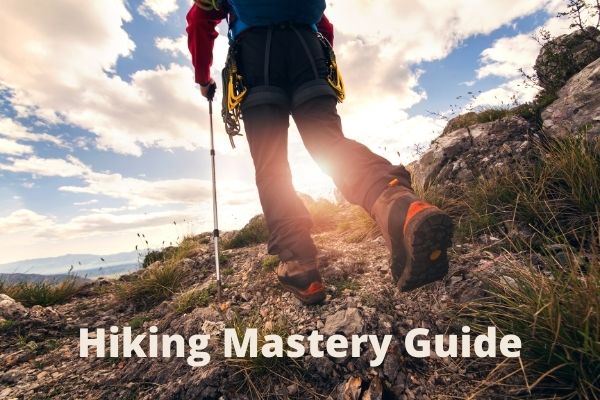Hiking is far more than just wandering aimlessly through the countryside. Hiking is the most efficient, enjoyable and intelligent way to discover the word. Nevertheless even a simple stroll through the woods can be greatly enhanced. Here are some of the most important things to consider when getting ready for a hiking adventure.
1) Start training early
No matter the length or conditions of your next hiking adventure there is no better time to prepare your body for the trek than right now. Begin by going short distances and then gradually increase the length of your trek as you continue. Improving cardiovascular endurance is one of the important first step to prepare for hiking. There are many ways to improve this including, running, swimming and cycling.
2) Prepare your feet for the hike
Your feet will be carrying you all the way up and down, so take every precaution and prepare them well. You will want to keep them well moisturized with an antifriction cream. This should begin a full 3 weeks before the trek in question. This has the capacity of improving the elasticity of your skin which will make it less susceptible to chafing and blistering. Check and learn about the conditions of your feet so that you can prepare well to best protect them.
3) Eat healthy before a trek
You probably have a good idea what kind of foods you will take with you on the big hike, but have you given thought to foods during the training phases. Your food and water will be the essential fuel that allows you to cross great distances and these should be taken seriously. Begin preparing your body with proper food and water long in advance.
4) Choosing the right hiking trail
Trekking is all about exploration and discovery. Hiking helps you to discover new way of life and train you to face obstacles in real life. With this in mind, take the time to begin an intuitive path to your hiking mastery. Choosing the right trail to complete in allocated time helps you to focus and train well in advance. Choose your trails by looking online for good trekking maps and even consulting tourist offices. You will find the trekking trails that are most suitable for your level and be able to improve your capacity accordingly.
The best recovery for long hours of trekking is to simply go to sleep. Your body will repair and replenish its energy levels during this time. You will also need plenty of water and good food during this time. Make sure you have also brought the important identification papers and extra cash. If you will be setting up camp, be sure to do so away from peaks, falling rocks, dry river beds and anything else that could be a hazard in the wild.
5) Prepare your trekking equipment
The right shoes for the trek will help you make it through the ordeal with plenty of strength and energy. It is essential that feet have the right amount of padding and protection for the gait and weight of the walker. Good hiking shoes will also better support the foot and protect them from shocks, bumps, strains and injury.
Using a 3D analysis tool can allow you to find the best sort of shoes for your needs. Remember that your feet will swell and heat up during the trek so choose something a little larger than you may originally have in mind to compensate for this. The choice of socks is going to play a big role in your hiking experience and protect you from heat and blisters – sometimes it will be best to use the three sock rule. Don’t forget how cold it can get on a hike.
Then, don’t wait till the big day is upon you to test out the hiking gear you have collected. Your shoes and sock selection are the most important part of gear that should be examined and fine-tuned for ultimate success. Your backpack should not weigh anymore than 20% of your total body weight.
6) Prepare a first aid kit
You will want to bring the essentials too. Make sure that along with your toiletries you bring a well-stocked first aid kit. Make no mistake about it, heading out on the trail is an invitation for stings, bites, bumps and bruises. Failing to take the proper protection and recovery items with you can make matters worse. A foot care kit is also a good idea and can quickly relieve the pains and chaffing of many hours of walking.
7) Let your feet breathe
You will spend many hours walking and no matter how perfect your socks and shoes are you can expect your feet to get pretty sore after a while. A great way to give your feet a good rest will be to take with you some Gravity Defyer sandals that you can use around camp at the end of the day. This will allow your feet to breathe and your day shoes to fully dry out. Make sure these are equally rugged to protect your feet.
8) Reading is mind training
Being mentally prepared is much more significant compared to preparing your body for the hiking. I would suggest to read Mike Horn’s Lattitude Zero. It provides a great perspective on the activity and can give you the experience and confidence to approach the trail. This is a great tale of an ordinary man’s adventures surviving the wild.
